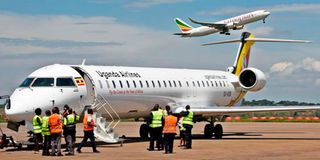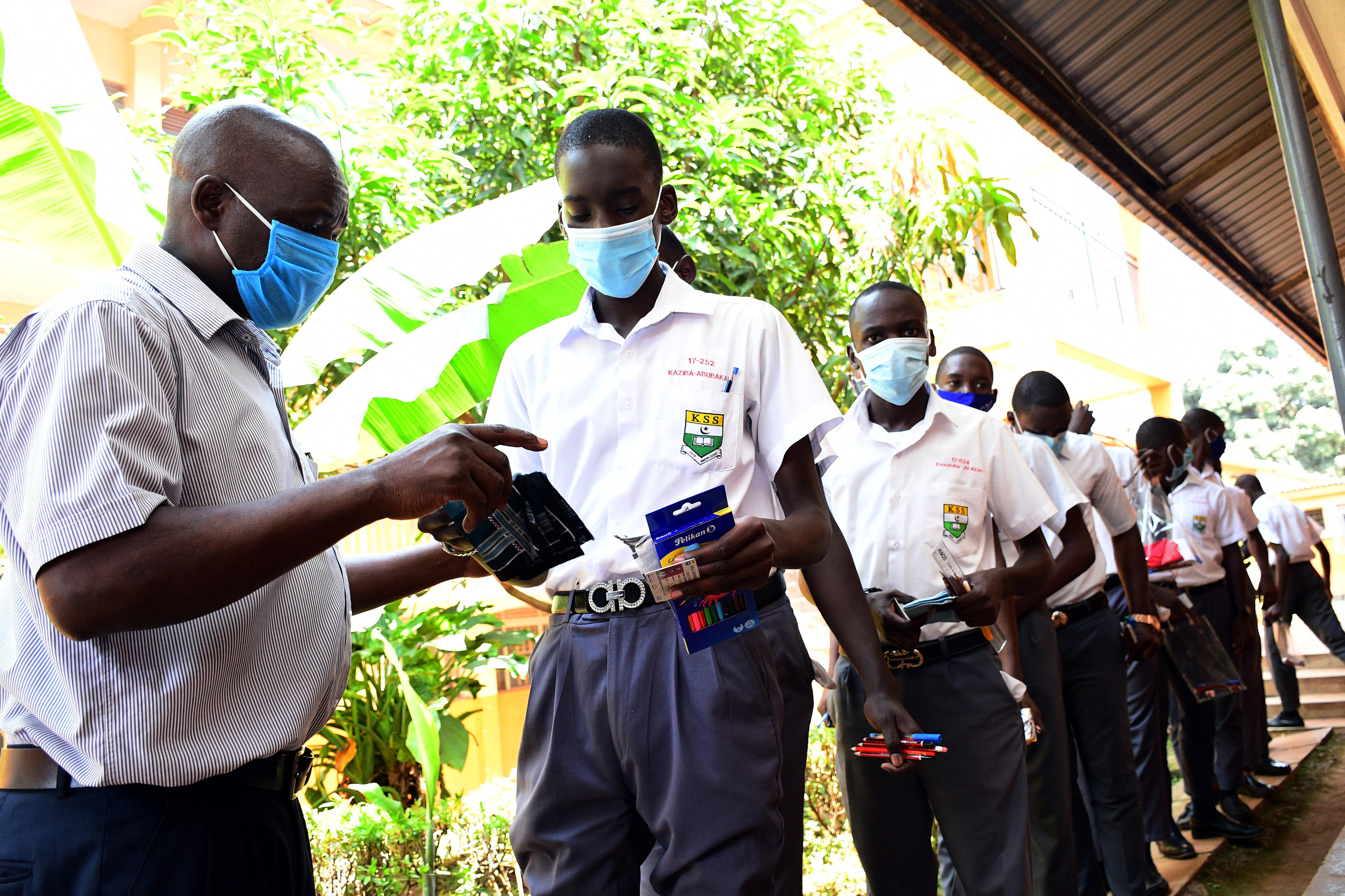Air passengers protest Covid tests in Uganda

Ground crew prepare a Uganda Airlines aircraft for departure as another plane operated by Ethiopian Airlines departs from Entebbe airport on August 27, 2019. Airlines operating from the airport asked passengers to fill an online Covid test form.
The decision by Uganda to direct arriving passengers take new Covid-19 tests before leaving the airport could frustrate the trust in certificates issued by authorised laboratories in the region, and which has seen seamless movement across borders.
President Yoweri Museveni launched the Entebbe International Airport Covid-19 Laboratories this week.
The programme is meant to screen arriving passengers by taking fresh samples.
But while Kampala says this is meant to ensure no new variants make their way into the country, it effectively means a rejection of test results issued by corresponding laboratories across Africa from where passengers arrive.
Email and Whatsapp
The African Union, which has been encouraging acceptance of test results between member states based on validity times, has not commented on the new policy.
But an official told the Sunday Nation in the background yesterday that the new policy is being interpreted as more of a non-tariff barrier to movement than a coronavirus prevention measure.
The Ugandan leader said the testing would be compulsory for all passengers, regardless of whether they are vaccinated or even if they carry with them valid negative PCR laboratory results.
Those arriving at the airport though are still required to present the negative PCR results before heading to the testing booths.
Two days after it was launched on Wednesday, complaints emerged as passengers had wait for their results for more than two hours.
Frustrated arrivals took to social media to question the reasons for testing even those with valid negative PCR certificates.
Previously, Uganda only authorised compulsory testing for people arriving from 10 “high risk” countries, including India.
Health Minister, Jane Ruth Aceng, said on Friday that the coronavirus tests would continue but results dispatched in under two hours via email or instant messaging apps.
“Like any new intervention, the procedure faced some challenges, which sections of the media portrayed as messages of frustration from passengers who experienced delays,” the minister told journalists after touring the testing hub at Entebbe airport on the outskirts of Kampala.
“One of the major challenges identified was the time to dispatch results to the arriving passengers. The problem has been addressed. This will be through an online dispatch system via email or WhatsApp. Those who do not have access to these will see their names on the screens erected at the waiting area and receive their results from a designated team member at the exit.”
Kenya Airways, Uganda Airlines, Ethiopian Airlines and others operating at Entebbe International Airport on Wednesday advised passengers to fill an online form https://arrivals.healthdesk.go.ug, which they have to print out and present to port health authorities.
Once the swab samples are taken, the passenger moves to a banking hall to pay $30 as laboratory fee and waits for results at a lobby.
Credit cards
The passengers could also pay via credit cards.
The entire process takes slightly more than two hours and is managed by the Uganda Army Brigade and the Civil Aviation Authority.
Visitors registered with local tour companies are being allowed to wait for their results at hotels.
Those who test positive are allowed to choose between free public care centres or private ones at own cost, according t the minister.
The policy resulted from a Uganda Cabinet meeting in September “to prevent the importation of new coronavirus variants”.
Uganda is the only country in the region still on strict lockdown measures.
The measures include the closure of schools, bars and clubs and a curfew that runs from 7pm to 5am.
The country has officially reported 125,788 infections and 3,200 deaths.
Only about 420,000 people have been fully vaccinated against the viral disease, with more than 2.9 million having received at least one dose.
Uganda has a population of more than 47 million.





